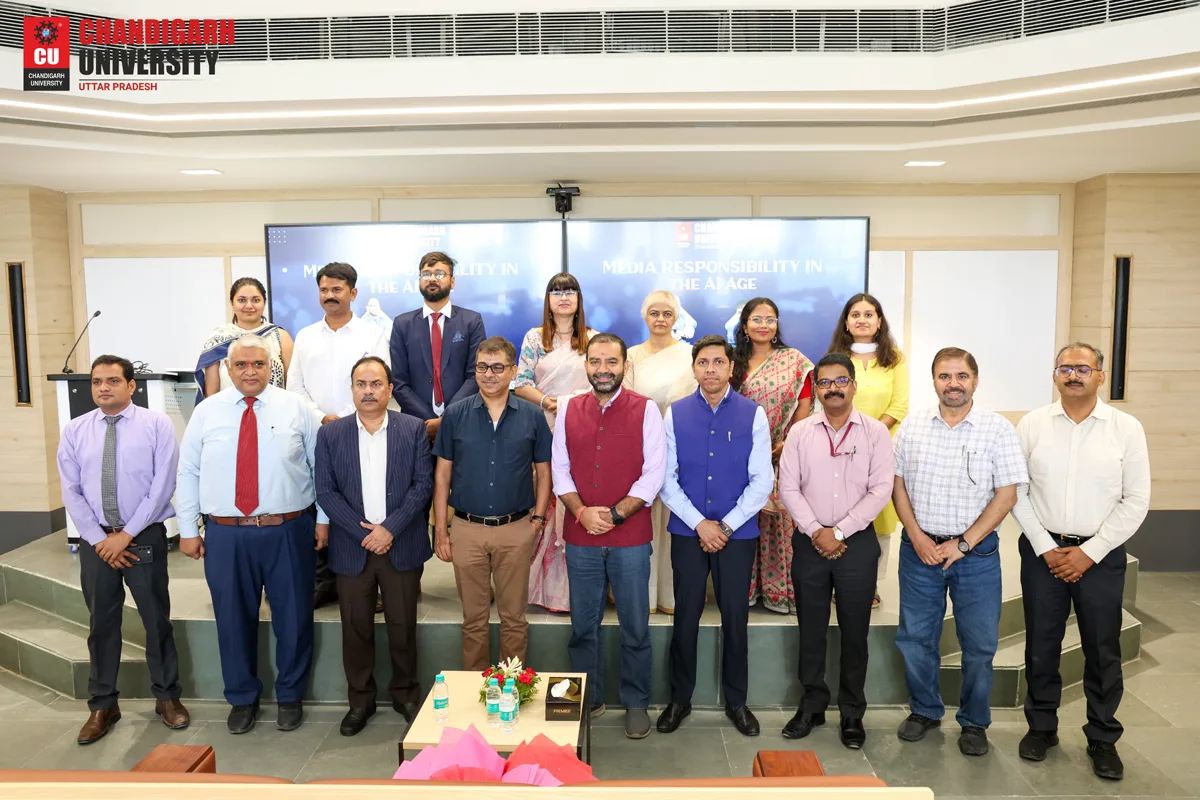Chandigarh University, Uttar Pradesh, Holds Conclave on Media Responsibility in the AI Age
by ago 101 views0

Considering the recent trends in Artificial Intelligence, the School of Media Studies at Chandigarh University, Uttar Pradesh, hosted an interactive on-site conclave, “Media Responsibility in the AI Age.” This was a one-day event, and the goal was to incorporate meaningful debate and widen the minds of those who participated in the event, which consisted of faculty members in different fields at Chandigarh University in Uttar Pradesh.
The keynote address was given by a well-known Digital Broadcast Expert and prolific author, Prof. Sanjeev Ratna Singh. He talked about the opportunities and challenges of AI to the media industry and acknowledged the fact that it has the potential to benefit the industry greatly, but must be used appropriately and intensely. He told the story behind the need to transform to maintain journalistic integrity, why people fear losing their jobs to AI, and what Singapore learned about reskilling older workers. He has concluded that the use of AI can increase efficiency and save time, but also emphasized the strict necessity of human supervision as a common duty to avoid the domination of AI in the media realm unnoticed.
The participants were also addressed by Prof. Sudhir Mishra, who is the Resident Editor at Navbharat Times, Lucknow. He praised the university administration for creating an exciting culture of academic life and modern infrastructure, engaging in enhancing the career of the students. He used the examples grounded on his experience in the industry and involved the audience in these examples. He stressed that the technological change is also the domain of greater socio-historical changes, especially in India, where many individuals need to change their skills so that they can keep pace.
The conclave again emphasized the need for human intervention and the aim of providing humanly responsible journalists and media persons by training them through a contemporary updated curriculum as provided at the School of Media Studies, Chandigarh University.
Dr. Thipendra P. Singh, Pro Vice Chancellor at Chandigarh University, Uttar Pradesh, also presented a very strong argument as to how the detection of deepfakes was essential and how print media would have to make the transition to be on the digital media platform.
The BA (Hons.) JMC program in the School of Media Studies is designed to develop forward-thinking leaders, entrepreneurs, and socially aware global citizens. The curriculum prioritizes human-machine collaboration, aligning with the demands of a workforce where artificial and human intelligence work together. The program’s goal is to cultivate ethically conscious citizens committed to unbiased and democratic reporting.
Closing the conclave, Dr. Om Prakash Dwivedi, Director of the Faculty of Humanities & Liberal Arts, shared the core vision of CU’s AI-enabled Media Studies department. He expressed concern about the reduced time and space for cultivating and sharing diverse viewpoints, stressing that such diversity is crucial for representing society’s full range of perspectives. He also underscored the media industry’s responsibility to maintain and protect this essential space for public discourse.
By assembling respected scholars and industry experts, the conclave reaffirmed Chandigarh University’s commitment to delivering an inclusive, comprehensive, and forward-thinking education.
